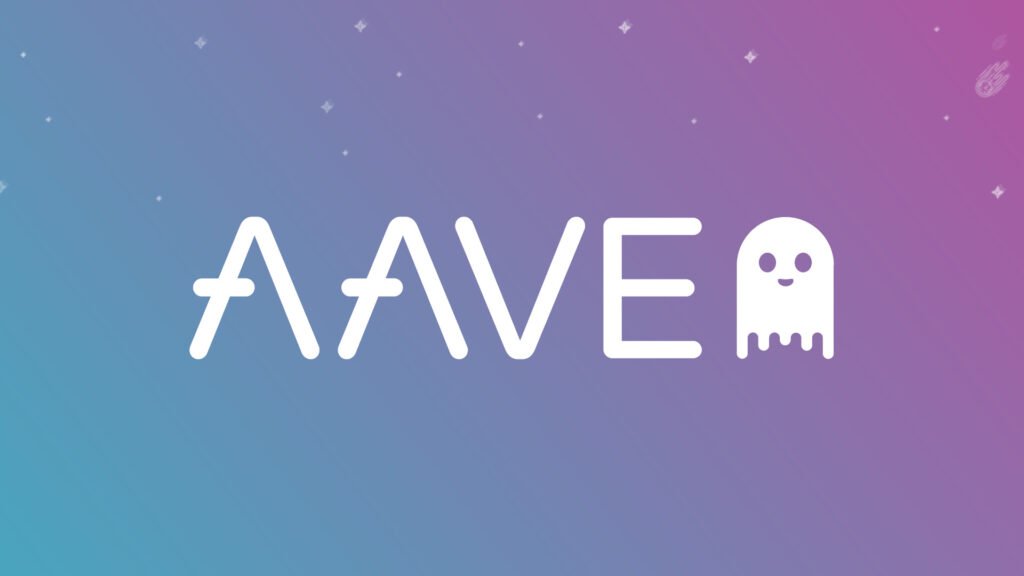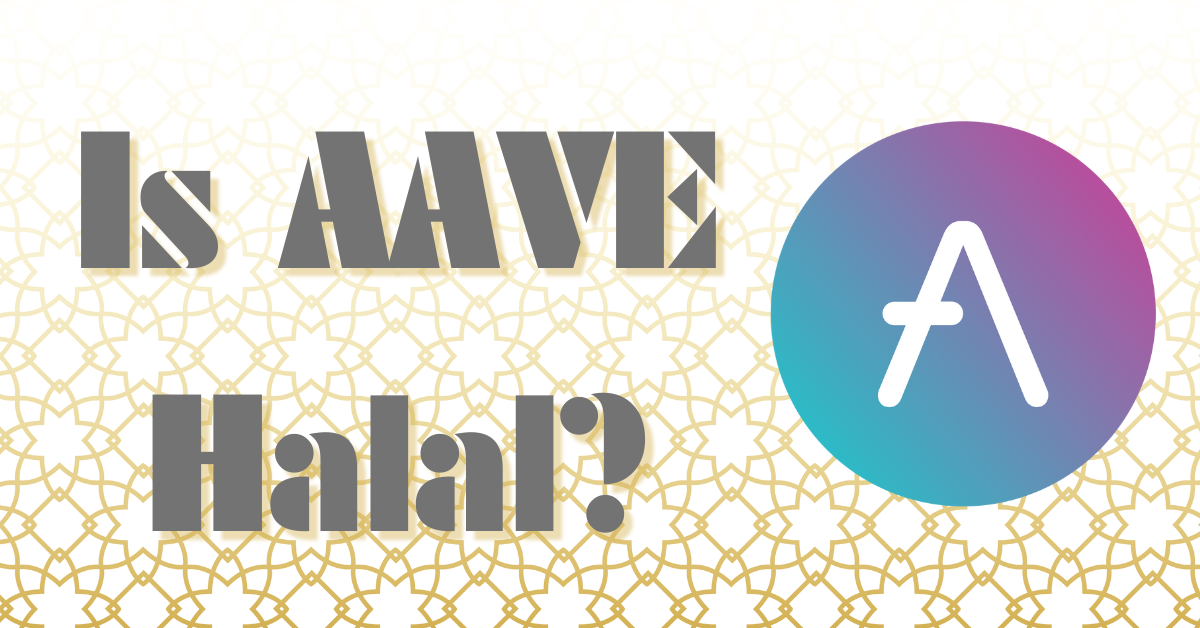Many Muslim investors wonder, “Is Aave halal?” This question is crucial due to the strict principles of Islamic finance, which prohibit involvement in interest-based activities, known as riba. This article will explore Aave, its ecosystem, and its compliance with Islamic financial principles.

Table of Contents
Understanding Aave
Aave is a decentralized lending protocol that allows users to lend and borrow cryptocurrencies. Operating on the Ethereum blockchain, Aave has gained significant traction in the DeFi space. The AAVE token serves as the governance token, enabling holders to vote on protocol changes and participate in decision-making processes.
Key Features of Aave
- Decentralized Lending and Borrowing: Aave facilitates peer-to-peer lending and borrowing without intermediaries.
- Governance: AAVE token holders can vote on protocol upgrades and changes.
- Flash Loans: A unique feature allowing users to borrow assets without collateral, provided the loan is repaid within the same transaction block.
Aave’s Ecosystem
Aave is part of a broader DeFi ecosystem that includes various categories such as:
- DeFi
- DAO
- Ethereum Ecosystem
- Yield Farming
- Three Arrows Capital Portfolio
- Governance
- HECO Ecosystem
- Solana Ecosystem
Is Aave Halal? The Islamic Finance Perspective
Business Model Analysis
The core function of Aave involves interest-based lending and borrowing. From an Islamic finance perspective, this is fundamentally problematic because it involves riba (interest). While the protocol itself is technologically sophisticated and transparent, its primary use case centers around interest-bearing activities.
Real-World Adoption
Aave has significant adoption in the DeFi space, with over $5 billion total value locked (TVL) across multiple blockchain networks. The protocol has established partnerships with major institutions and continues to see active usage for lending and borrowing activities.
Platform Development
The protocol maintains strong development activity with regular updates and improvements. The team consistently releases new features and security improvements, demonstrating a commitment to the project’s long-term success.
Token Distribution
The token distribution appears relatively fair, with about 16% allocated to the founding team and advisors, subject to vesting periods. The majority of tokens are distributed among the community and treasury.
Crypto Impact
To determine whether Aave is halal from an Islamic perspective, we need to assess its net positive or negative impact. The table below summarizes the key considerations:
| Consideration | Impact |
|---|---|
| Interest-based lending | Negative |
| Decentralized governance | Positive |
| Technological innovation | Positive |
| Community involvement | Positive |
| Speculative nature | Negative |
Expert Opinions on Aave’s Halal Status
Several Islamic finance experts and organizations have weighed in on the halal status of Aave. Here are some notable views:
- Crypto Ummah: According to Crypto Ummah, Aave is not halal. The platform’s interest-based lending and borrowing activities are considered riba, which is strictly prohibited in Islam.
- Islamic Finance Guru (IFG): IFG also considers Aave to be haram due to its reliance on interest-based activities. They advise Muslims to avoid trading, investing, or staking AAVE.
- Marhaba DeFi: Marhaba DeFi’s Shariah governance board also believes that Aave is haram and advises Muslims to steer clear of it.
- Shariah Assessment for Digital Assets: According to Shariah assessment for Digital Assests, “Crypto Halal Office for Monitoring and Sharia auditing on cryptocurrency markets considers AAVE as a Haram digital asset based on its Shariah complaince screening.”
- Islamic Economics & Finance: Islamic Economics & Finance highlights that Aave’s digital currency lacks physicality and regulation, making it haram. The platform’s value is derived from lending activities, which are not permissible in Islamic finance.
- Moez Mahrez: Moez Mahrez, founder of the blog halal.investor, explains that Aave, along with other cryptos like FTX and Synthetix, is haram and should be avoided.
Community Feedback
The Muslim community has also voiced concerns about Aave’s halal status:
- Reddit Discussions: A Reddit user expressed concern after realizing that Aave’s value is derived from interest-based lending. The community advised caution and suggested seeking guidance from Islamic scholars.
- YouTube Analysis: A YouTube video titled “Is AAVE Halal Or Haram?” discusses the platform’s lending and borrowing activities, concluding that Aave is not halal due to its involvement in riba.
Conclusion
Based on the analysis and expert opinions, it is clear that Aave is not halal. The platform’s core function involves interest-based lending and borrowing, which is prohibited in Islamic finance. Muslim investors should avoid trading, investing, or staking AAVE to remain compliant with Shariah principles.
For those seeking halal investment opportunities in the crypto space, consider exploring other options like Aptos, Dai, and Near Protocol. Always conduct thorough research and consult with Islamic finance experts before making any investment decisions.
Share your thoughts and insights on Aave’s halal status in the comments below. Let’s foster a community of informed and responsible Muslim investors.
For further reading and to deepen your understanding of the halal status of Aave and other cryptocurrencies, you can explore the following resources:
- Crypto Ummah provides a detailed Shariah screening of Aave and other cryptocurrencies, offering insights into their halal status.
- Islamic Finance Guru (IFG) shares their views on the halal status of various cryptocurrencies, including Aave, and provides guidance for Muslim investors.
- Practical Islamic Finance offers comprehensive halal crypto reports, helping investors make informed decisions.
- Shariyah Review Bureau provides Shariah assessments for digital assets, ensuring compliance with Islamic financial principles.
- IsThisCoinHalal is a valuable resource for Muslim investors, offering insights into the halal status of various cryptocurrencies, including Aptos, Dai, and Near Protocol.
These resources will help you stay informed and make responsible investment decisions in the crypto space while adhering to Islamic financial principles.
Disclaimer: This article is intended for educational purposes only. If you need a fatwa for your specific situation, always consult a qualified Islamic scholar you trust. The purpose of this article is to broadly address the question: Is Aave halal? It should not be considered as religious or financial advice.

1 thought on “Is Aave Halal? A Comprehensive Guide for Muslim Investors”